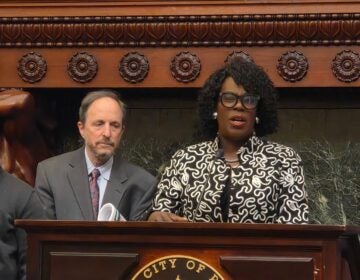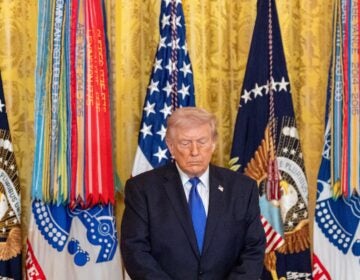The 14th Amendment and the debt ceiling
Treasury Secretary Geithner casually, but deliberately, quoted Section 4 of the 14th Amendment to the Constitution last week, and President Obama responded to a question by saying we shouldn’t have to reach the constitutional questions raised by its language:
“The validity of the public debt of the United States, authorized by law, including debts incurred for payment of pensions and bounties for services in suppressing insurrection or rebellion, shall not be questioned.”
Did the Treasury Secretary and the President mean to suggest that they could act unilaterally in the event that the Congress fails to reach agreement on raising the debt ceiling from its current $14.3 trillion level by the deadline of August 2? Were they trying to level the playing field in the difficult debt ceiling deliberations by clarifying that the Republicans did not in fact hold all the trump cards?
That language in the 14th Amendment was adopted after the Civil War to prevent any future Congress from repudiating public debts of the United States previously authorized.
Could it be argued that the current Congress would be attempting to do just that if it fails to authorize an increase in the national debt in order keep making payments due on the public debts of the United States? And would such failure to raise the debt ceiling be effectively prohibited by Section 4 of the 14th Amendment? Could the President therefore “deem” the debt ceiling raised by Congress even in the absence of Congressional action?
The U.S. Supreme Court in its only interpretation of Section 4 of the 14th Amendment broadly interpreted the expression “the validity of the public debt” as embracing “whatever concerns the integrity of the public obligations.”
So I think that Section 4 of the 14th Amendment could plausibly be interpreted to require Congress to raise the national debt ceiling whenever required to maintain the integrity of public obligations. And under that interpretation, the President might act in accordance with what Congress is constitutionally obligated to do.
But neither President Obama nor Secretary Geithner have invoked that interpretation, and for good reason. Asserting presidential power under the Constitution to unilaterally do what is necessary to maintain the integrity of public obligations would set off a political firestorm. Congressional Republicans in particular would view such a claim as infringing the enumerated power of Congress under Section 8 of Article I of the Constitution “To borrow Money on the credit of the United States”. Acting upon such a claim might even be considered to be grounds for impeachment of the President.
Even signaling their interest in Section 4 of the 14th Amendment, as the President and Secretary have done, may prove to be unwise if it stiffens the opposition to compromise and to raising the debt ceiling. If congressional Republicans conclude that the President will act unilaterally to maintain the integrity of public obligations, that may guarantee their votes against compromise and a debt ceiling increase. Why should they risk alienating their base if the President is going to do what he wants anyway?
WHYY is your source for fact-based, in-depth journalism and information. As a nonprofit organization, we rely on financial support from readers like you. Please give today.




